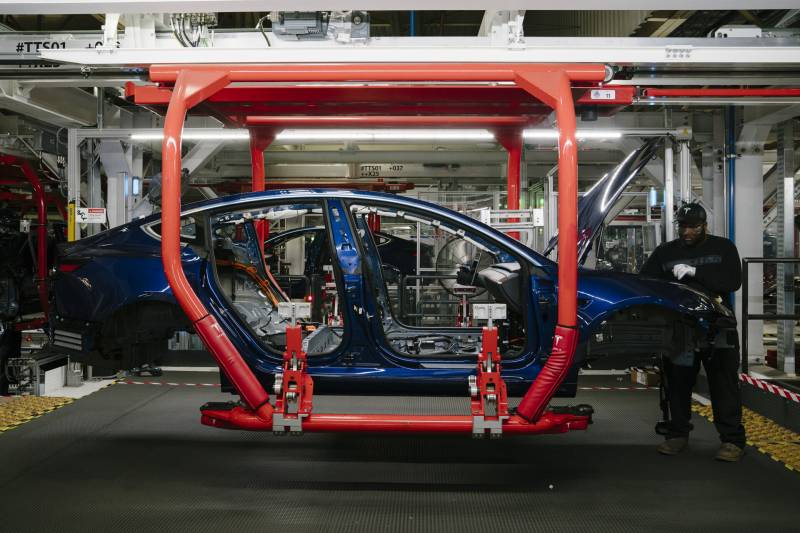Updated 5:20 p.m.
California regulators have sued Tesla Inc., alleging the electric carmaker has been discriminating against Black employees at the Bay Area factory where most of its vehicles are made.
The lawsuit seems likely to widen a rift between Tesla CEO Elon Musk, the world's wealthiest person, and the state where he launched the company. Tesla is now worth more than $900 billion, less than 20 years after Musk set out to transform the auto industry.
Musk moved Tesla's headquarters from Palo Alto to Austin, Texas, last year after publicly feuding with Alameda County officials over whether Tesla's Fremont factory should remain shut down during the spring of 2020 while the coronavirus pandemic was still in its early stages (Musk reopened the factory in defiance of county health orders).
The discrimination lawsuit, filed late Wednesday in Alameda County Superior Court by California's Department of Fair Employment and Housing, was sparked by hundreds of worker complaints, said Kevin Kish, the agency's head.
The department, which enforces state civil rights laws, "found evidence that Tesla's Fremont factory is a racially segregated workplace where Black workers are subjected to racial slurs and discriminated against in job assignments, discipline, pay, and promotion creating a hostile work environment," Kish said in a statement reported by The Wall Street Journal and Bloomberg.
In its 39-page complaint filed Wednesday, the state alleges that Black workers at Tesla's Fremont factory have reported since 2012 that supervisors and managers "constantly use the n-word and other racial slurs to refer to Black workers."
Black workers have also complained "that swastikas, 'KKK,' the n-word, and other racist writing are etched onto walls of restrooms, restroom stalls, lunch tables, and even factory machinery," and have said they are often assigned more physically demanding work, paid less than other workers and often denied advancement opportunities, the filing reads.
